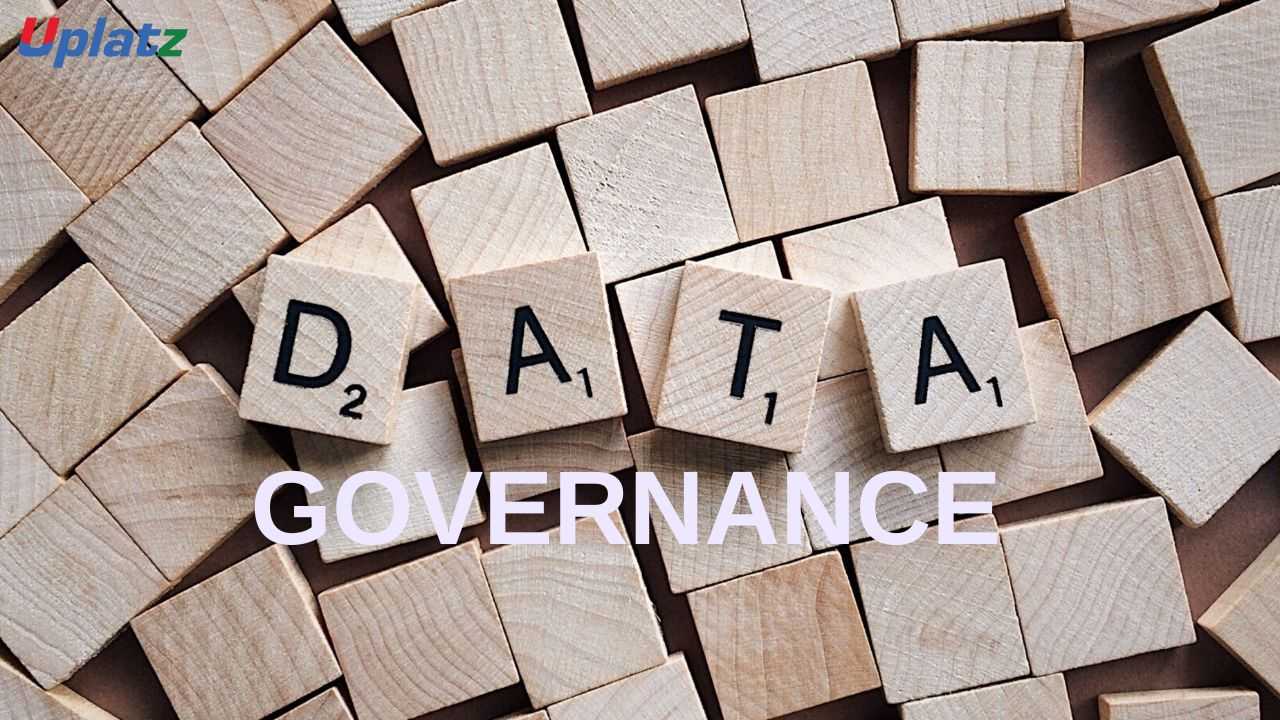AI Ethics, Governance, and Compliance
Learn to build ethical, governed, and compliant AI systems with best practices, frameworks, risk management, and real-world insights.Preview AI Ethics, Governance, and Compliance course
Price Match Guarantee Full Lifetime Access Access on any Device Technical Support Secure Checkout Course Completion Certificate 91% Started a new career
BUY THIS COURSE (
91% Started a new career
BUY THIS COURSE (GBP 12 GBP 29 )-
 86% Got a pay increase and promotion
86% Got a pay increase and promotion
Students also bought -
-

- Premium Career Track - Chief Information Officer (CIO)
- 400 Hours
- GBP 39
- 1870 Learners
-

- Data Governance
- 4 Hours
- GBP 12
- 276 Learners
-

- SAP MDG (Master Data Governance)
- 25 Hours
- GBP 29
- 145 Learners

What is AI Ethics, Governance, and Compliance?
AI Ethics, Governance, and Compliance refer to the frameworks, principles, and processes that ensure artificial intelligence systems are developed, deployed, and monitored in a responsible, fair, and legally compliant manner.
Key Definitions
-
AI Ethics
The moral principles guiding AI development—e.g., fairness, transparency, accountability, privacy, and human-centered design. -
AI Governance
The policies, structures, and oversight mechanisms for managing AI risks and aligning its use with organizational values and societal norms. -
AI Compliance
Ensuring AI systems adhere to legal, regulatory, and industry-specific requirements, such as GDPR, HIPAA, or the EU AI Act.
How AI Ethics, Governance, and Compliance Works
-
Ethical Design & Development
-
Embed fairness, explainability, privacy, and non-discrimination into AI models.
-
Use tools like model cards and data sheets.
-
-
Governance Frameworks
-
Establish AI oversight committees, risk registers, and model documentation standards.
-
Define roles for AI accountability (e.g., AI product owner, ethics lead).
-
-
Risk Assessment & Mitigation
-
Conduct bias audits, adversarial testing, and impact assessments.
-
Apply guardrails (e.g., red-teaming, model interpretability tools).
-
-
Compliance Monitoring
-
Align with local and global laws (e.g., EU AI Act, U.S. Blueprint for an AI Bill of Rights).
-
Maintain audit trails, consent mechanisms, and clear documentation.
-
-
Continuous Monitoring
-
Monitor AI performance, fairness, and behavior in real time using AI observability tools.
-
Implement feedback loops to retrain or decommission models when necessary.
-
The AI Ethics, Governance, and Compliance course by Uplatz equips students with the critical knowledge and practical skills needed to develop and manage responsible AI systems. By exploring key principles such as fairness, transparency, accountability, and regulatory compliance, students will understand how to identify and mitigate ethical risks in AI development and deployment. The course also covers major global frameworks like the EU AI Act and GDPR, preparing learners to navigate legal obligations in real-world projects. This training is ideal for aspiring AI professionals, product managers, policy advisors, and compliance officers looking to build trustworthy and legally compliant AI solutions.
Upon successful completion, students will receive a Course Completion Certificate from Uplatz, validating their expertise in ethical and compliant AI practices.
Course/Topic 1 - Course access through Google Drive
-
Google Drive
-
Google Drive
By the end of this course, learners will be able to:
- Understand the principles and importance of AI ethics.
- Identify key stakeholders and their roles in AI ethics and governance.
- Apply leading ethical frameworks to AI projects.
- Build and implement AI governance models.
- Integrate compliance programs and risk management strategies.
- Recognize emerging trends and challenges in AI governance and compliance.
- Develop organizational frameworks for ethical AI development and deployment.
AI Ethics, Governance, and Compliance - Course Syllabus
Module 1 - AI Ethics
- What is AI
- What are Ethics, Governance and Compliance- An Introduction
- AI Ethics
- Introduction- Understanding AI Ethics
- Stakeholders in AI Ethics
- Principles of beneficence and non- maleficence
- Discussion on Accountability
- Ethical AI Frameworks
- Property of the System- Transparency
- AI and Human rights
- Non discrimination
- Ethics in practice
- Common ethical issues in AI
Module 2 - AI Governance
- AI Governance
- What is AI Governance?
- Need for AI Governance
- Building blocks and Key components of AI Governance
- Approach to AI Governance
- Implementing AI Governance
- Developing a Compliance program
- Model of AI Governance
- AI governance frameworks
- AI Governance toolkit
- Best Practices
- Measuring Governance and Compliance Effectiveness
- The path ahead- Future of AI Governance
- Current Trends
- Overcoming AI Governance challenges
- Synthesizing AI Governance into Action
Module 3 - AI Compliance
- AI Compliance
- Understanding AI Compliance
- Importance of AI Compliance
- Keys Aspects of AI compliance
- Ensuring AI Compliance
- Risk Management in AI
- Type of AI Risks
- Assessing AI risks
- Risk mitigation techniques
- AI Risk management in Action
- Building a Risk Management framework
Upon successful completion of the AI Ethics, Governance, and Compliance course, learners will receive a Course Completion Certificate recognizing their proficiency in managing ethical, governed, and compliant AI systems.
This certificate will strengthen your profile in industries emphasizing ethical AI use, regulatory compliance, and responsible innovation.
Completing this course unlocks diverse career opportunities in responsible AI and technology governance roles. Positions include:
- AI Ethics Officer
- AI Governance Consultant
- Compliance Analyst (AI/Tech)
- Risk Management Specialist for AI
- AI Policy Advisor
- Responsible AI Engineer
- AI Regulatory Compliance Manager
Sectors such as finance, healthcare, government, technology, and consulting increasingly demand professionals skilled in ethical AI practices and governance.
Whether you're a tech professional, policy expert, or business leader, this course positions you for leadership roles in the responsible AI landscape.
1. What is AI Ethics and why is it important?
AI Ethics involves the study and implementation of moral values and principles in the development and use of AI technologies. It is important to ensure AI systems are fair, transparent, accountable, and respect human rights.
2. Who are the stakeholders in AI Ethics?
Stakeholders include AI developers, users, policymakers, business leaders, regulatory bodies, and affected communities. Each has a role in ensuring ethical AI practices.
3. What is meant by "AI Governance"?
AI Governance refers to the structures, policies, and processes that oversee AI development and deployment to ensure accountability, transparency, fairness, and compliance with laws and ethical norms.
4. Why is transparency important in AI systems?
Transparency helps users and regulators understand how AI decisions are made, builds trust, facilitates accountability, and enables easier detection of biases and errors.
5. What are some key principles of ethical AI?
Key principles include beneficence (doing good), non-maleficence (avoiding harm), fairness, transparency, accountability, privacy protection, and respect for human rights.
6. How can organizations implement AI Governance frameworks?
Organizations can develop AI governance by setting ethical guidelines, establishing oversight committees, conducting regular audits, training staff, and integrating ethical reviews into the AI development lifecycle.
7. What is AI Compliance and why is it necessary?
AI Compliance involves adhering to laws, regulations, and ethical standards related to AI technologies. It ensures that AI systems are legally compliant, ethically sound, and mitigate risks like bias, discrimination, or misuse.
8. What are common risks associated with AI?
Risks include algorithmic bias, discrimination, privacy violations, lack of transparency, security breaches, and unintended harmful outcomes.
9. How is risk management applied in AI?
Risk management in AI involves identifying, assessing, and mitigating potential ethical, legal, and operational risks associated with AI systems through frameworks, audits, testing, and continuous monitoring.
10. What are some best practices for ensuring ethical AI development?
Best practices include stakeholder engagement, transparency in design, inclusive datasets, bias testing, regular audits, establishing accountability structures, and ongoing education on ethical standards.









